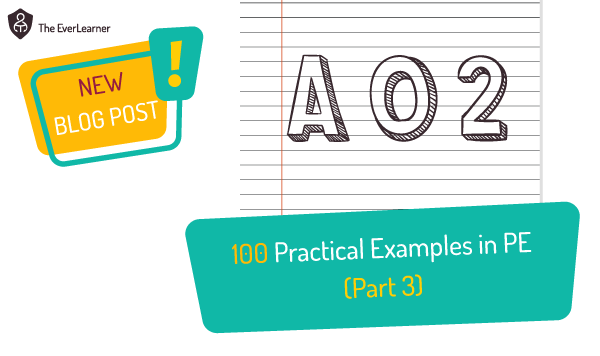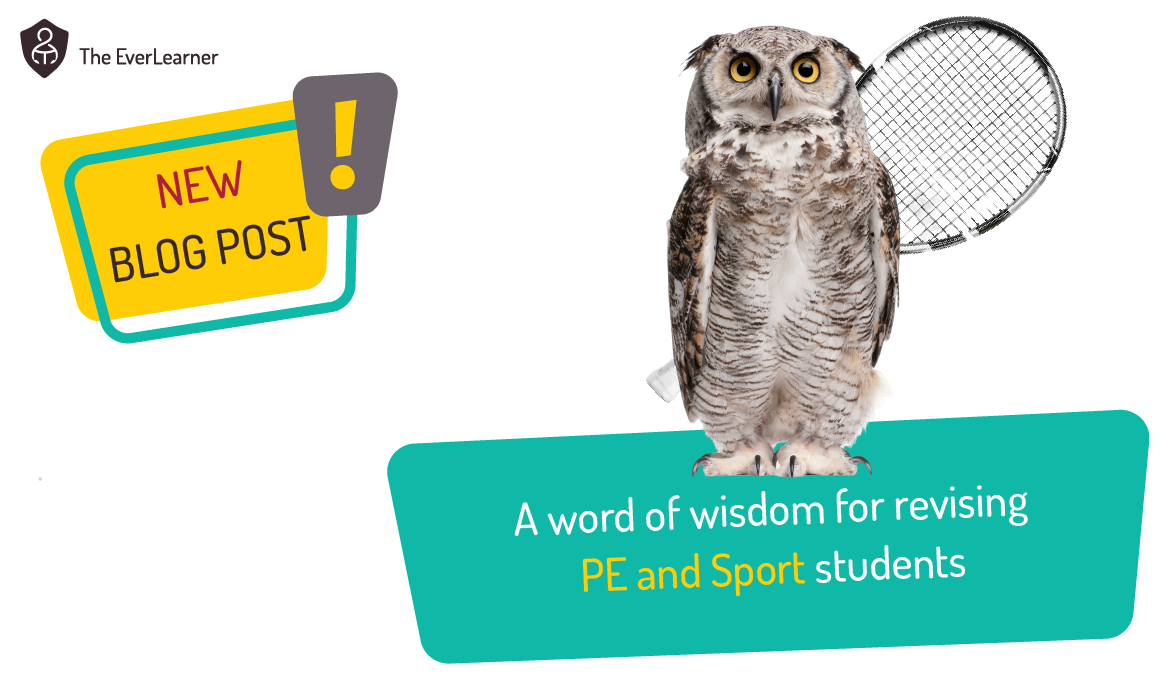Struggling with AO2 or making examples? Not anymore!
Welcome to the Changing Rooms blog. This week (I publish every Wednesday at 19:00), I want to discuss the use of examples in physical education lessons and help to resource teachers and students to make better examples and knowledge application in order to achieve more marks in exams and coursework. These marks normally come in the form of Assessment Objective 2 (AO2) but what follows can also be applied in any PE lesson, whether practical or theoretical.
So, how does all this work? Well, this post is one of a series of posts that you can both read but also download resources from (freely). For example, last week’s post was all about the E-I-O model and I urge you to visit here and download those resources (freely). Furthermore, I have written extensive examples of examples in three blog posts which you can access here:
- 100 Practical Examples in PE (Part 1)
- 100 Practical Examples in PE (Part 2)
- 100 Practical Examples in PE (Part 3)
But today I want to take another major step forward and provide you with 22 specific performer profiles that you can use with your students in order to provide a range of stimuli.
These free-to-download profiles are based on these seven principles:
- ✽51% female
- Representative of a range of ethnicities
- Representative of a range of performance levels and reasons to participate
- Representative of sport for athletes with or without impairment
- Extendable - these profiles can be broadened in terms of additional information on the current profiles but, crucially, further profiles in the future
- Beautiful and usable - the profiles have been professionally designed to be eye-catching and memorable resources
- Formatted for presentation and learning. You can download posters but also playing cards of the performers
✽This is a theoretical principle. In our business, we aim for 51% female representation. This is achieved over thousands of images, not just these profiles. You may want to ask me “Why not 50% female?” The answer is that once you achieve 50%, you have to choose male or female for the next image. Hence, always leaning towards the female once this balance is achieved. 🙂
Take a look at one profile below:
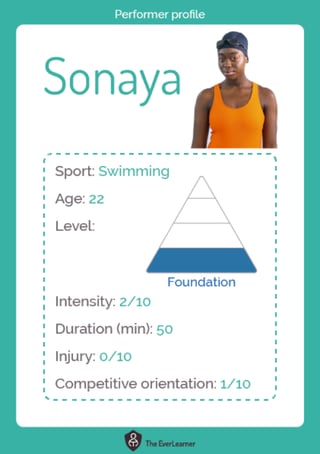
The profile is presented in a “Top Trumpsy” sort of way but is not intended for Top Trumps play (unless you’re really bored). Rather, the details of the profile provide insight into the performer. These insights should help the teacher and student to make more specific examples following the E-I-O Model.
Here’s another:
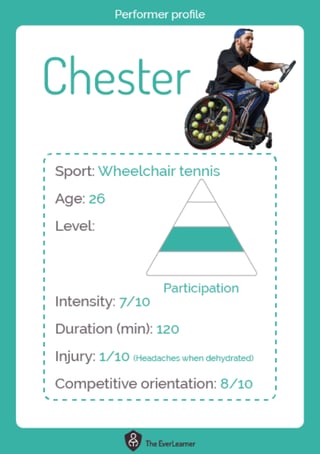
Notice how the performers are quite different and provide a separate challenge to a student answering a question. Let’s imagine the question was something like:
A teacher would use the range of profiles to provide variety to answers and to challenge. Perhaps every student or pairs of students would need to select a card at random and use that profile as the one they write about. At the end of this activity, there would be an impressive range or –one would hope– well-made examples.
Let’s take another question:
Again, the answer to this question would be significantly different when writing about Sonaya and Chester. Furthermore, the intensities and durations provided on the profile would scaffold the students when writing.
So, I want to provide the resources to you initially in two formats:
Format 1:
Once you download the resources, you’ll receive 22 high-definition A4 posters which I encourage you to print, laminate and utilise within a comprehensive classroom wall display. Consider “teaching from” this display when the opportunity presents itself. I recommend placing the display in a space where students are able to gather, such as next to a whiteboard or along a side wall.
Format 2:
You’ll also receive a series of playing cards, which have been formatted to allow you to print (two-sided, please), laminate and guillotine. These playing cards can then be used to provide variety in your PE lessons and a sense of randomness or scaffolding or differentiation.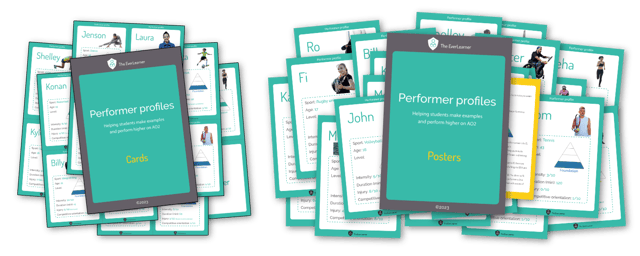
I am extremely proud to release these profiles. If you have suggestions about them, please let me know. If you spot an issue with them, please let me know. If you go on to use them in an exciting and vibrant way, please post a photo or video on social media and tag us in it too. I love to receive this feedback. 🙂
Have a wonderful day.
James
%20Text%20(Violet).png)

